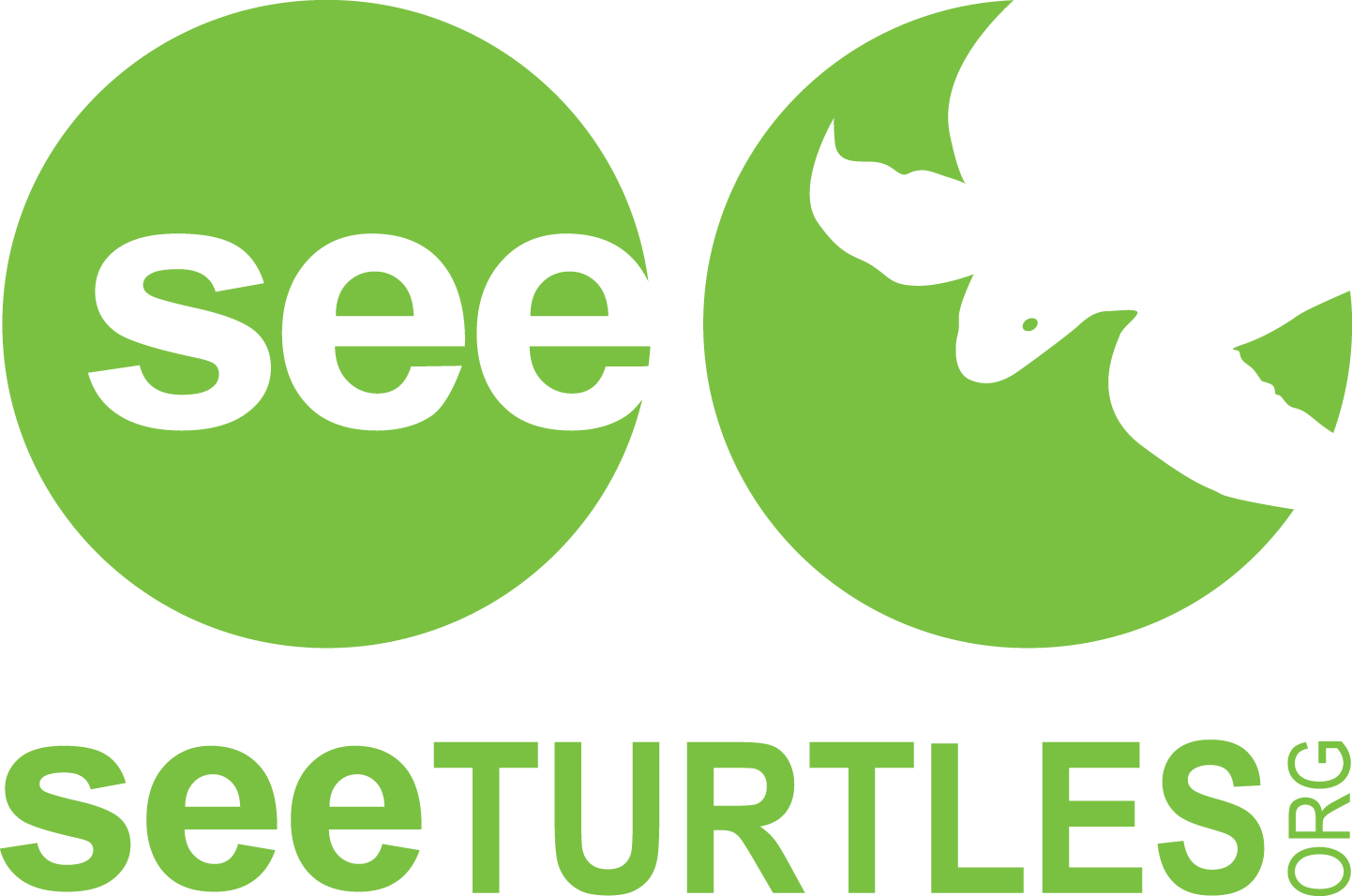Tackling Plastic Pollution in Sea Turtle Habitat
Since the launch of SEE Turtles in 2008, we have educated students, travelers, and the general public about how plastic impacts sea turtles and other ocean wildlife. We organize beach cleanups during our trips, work with a number of sponsors who produce recycled plastic products or plastic alternatives, and advocate for plastic policies through our social media. We have also supported a number of efforts to clean plastic up and create new revenue streams from this waste (see below for details).
SEE Turtles is now ready to take on a larger role in the fight to stop plastic pollution in the ocean. Our new Sea Turtles and Plastic campaign will work with turtle conservation organizations, ocean plastic cleanup and recycling organizations, and business sponsors to get plastic out of sea turtle habitat and to create new markets for recycled ocean plastic. We will also step up our advocacy efforts, including taking over management of Travelers Against Plastic and starting a new Sea Turtles and Plastic newsletter that will include tips for reducing plastic waste.
How We Will Help Reduce Plastic In the Ocean
Through our new campaign, we will raise funds for partner organizations to launch plastic reduction programs such as:
Green Phenix (Curacao): This award-winning innovative social enterprise is helping reduce plastic waste and provide employment on this Dutch Caribbean island. The organization has purchased machinery to recycle plastic waste collected locally into valuable products like face shields and plastic beams and bricks to be used in construction. Green Phenix also organizes beach cleanups around the island to help keep plastic out of sea turtle habitat and provides job training and employment for more than 20 local residents. Curacao is an important area for sea turtles, both juvenile green turtles living in their waters, and green and hawksbill turtles nesting on their beaches.
How your donation will help reduce plastic pollution:
We will fund 50 new beach cleanups around the island over the next year, which we estimate will collect approximately 1,650 lbs of recyclable ocean plastic and more than 7,000 lbs of other waste.
Currently their recycling machines can only process single stream materials (those that are separated) but they require additional equipment to be able to turn the waste collected in beach cleanups into new products. These funds will help them purchase an oven and new moulds which will be used to make new products.
The new products that Green Phenix makes with this equipment will be sold, with the funds helping to pay for additional beach cleanups, help the organization become self-sustaining, and provide new job opportunities for local residents.
Research Center for Environmental Management and Development (CIMAD) (Colombia): This nonprofit organization combines conservation with the needs of local communities to protect biodiversity in Colombia. This project aims to tackle sea turtle nesting beach pollution at Pangui community in the Choco Pacific region of Colombia by transforming plastic into handicrafts made by local women. The goal is to reduce habitat degradation due to plastic accumulation along sea turtle nesting grounds while providing a source of economic income to poor families through the sale of recycled manufactured items.
How your donation will help reduce plastic pollution:
This project will train women in 5 families in the in the rural community of Pangui to recycle plastic bags into handbags, belts, hats, and other products.
Sales from these products will help earn income in a rural community without many alternatives, an estimated $1,000 or more per family per year.
This program will help keep plastic off of nesting beaches for turtles laying eggs and for juvenile hawksbills living in the waters of this area.
Learn more about CIMAD here (in Spanish).
We will also use our social media network, enewsletters, and Travelers Against Plastic to advocate for plastic reduction efforts including policies, corporate pressure, and other outlets. In addition, we will work with businesses to create new products from ocean plastic that will help to fund additional plastic projects.
SEE Turtles Plastic Efforts To Date:
We provided funding for a Latin American Sea Turtles program in Costa Rica that supported women-led cooperatives to recycle plastic bags into reusable handbags. We provided financial support and sold the bags in our online store and at events.
In partnership with Turtle Island Restoration Network, we provided funding for the Environment Society of Oman to clean derelict fishing gear (also known as “ghost gear”) washed up on the beaches Masirah Island, one of the most important beaches in the world for loggerhead turtle nesting. The effort removed approximately 90 tons of waste, primarily fishing gear.
We support efforts to upcycle plastic waste from sea turtle habitats by selling these products in our online store. We’re the first and only US seller of dog leashes made from ghost fishing gear made in Pakistan through our partners at the Olive Ridley Project. We also sell recycled plastic necklaces made by the Sea Monkey Project. See below or click here to purchase those items from our online store.
Our educational presentations for schools and the public include the threat of plastic pollution and ways people can help reduce this threat. We also have a lesson for schools on sea turtles and plastic as part of our school program and many student groups have conducted recycling fundraisers as part of our Baby Turtle Fundraising Contest. We also hosted a webinar on sea turtles and plastic that you can watch here.
SEE Turtles was the first Gold Sponsor of Travelers Against Plastic. We’re now co-managing the campaign with Crooked Trails to reduce plastic use in the travel industry.
Our sea turtle conservation trips reduce plastic by encouraging travelers to bring reusable plastic bottles and offering clean filtered water, as well as organizing beach cleanups on sea turtle nesting beaches.
How you can support efforts to get plastic out of the ocean and turtle nesting beaches:

